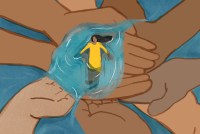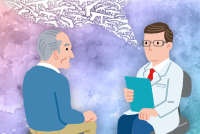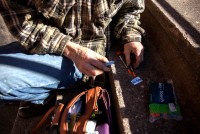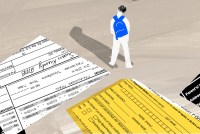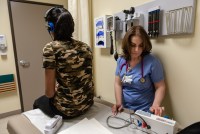Latest KFF Health News Stories
As U.S. Suicide Rates Rise, Hispanics Show Relative Immunity
Support from family and community appear to shield Latinos from rising suicide rates, researchers say.
Must-Reads Of The Week From Brianna Labuskes
Newsletter editor Brianna Labuskes wades through hundreds of health articles from the week so you don’t have to.
Dementia And Guns: When Should Doctors Broach The Topic?
As the number of Americans with dementia rises, health professionals grapple with how to talk to patients about gun safety at home.
Black Market For Suboxone Gives Some A Glimpse Of Recovery
Addiction experts argue that buprenorphine, which drug users buy on the street, actually saves lives because it is used in place of more dangerous substances, like heroin and fentanyl.
Must-Reads Of The Week From Brianna Labuskes
Newsletter editor Brianna Labuskes wades through hundreds of health articles from the week so you don’t have to.
Managing Your Mental Health While Managing A Newsroom’s Social Media
Reflections on coping with a new high-stress profession.
Judges In California Losing Sway Over Court-Ordered Drug Treatment
In a Medicaid-funded pilot project starting with 19 counties, clinicians and other providers are now in charge of deciding what kind of treatment an offender needs. The change has rankled some judges and attorneys — and forced some felons to spend more time in jail — but it has been largely embraced by clinicians and county agencies.
Buried In Congress’ Opioid Bill Is Protection For Personal Drug Imports
The protection is a win for people who get their needed, legitimate drugs from overseas.
Readers And Tweeters Slice And Dice Precision Medicine, Step Therapy
Kaiser Health News gives readers a chance to comment on a recent batch of stories.
En Florida, padres critican requisito escolar que obliga a revelar la salud mental de sus hijos
El nuevo requisito es parte de una ley aprobada por la legislatura estatal después del tiroteo de febrero en la escuela secundaria Marjory Stoneman Douglas, en Parkland.
Sobredosis de opioides en el trabajo, una realidad que empleadores ignoran
En ciertas industrias, como la de la construcción, el consumo de opioides es una constante con la que pocos empleadores están preparados para lidiar.
Parents Are Leery Of Schools Requiring ‘Mental Health’ Disclosures By Students
Florida school districts now have to ask if a new student has ever been referred for mental health services. It’s a legislative attempt to help troubled kids. Will it work, or increase stigma instead?
Workers Overdose On The Job, And Employers Struggle To Respond
Despite the growing epidemic of Americans misusing opioids and overdosing on the job, many employers turn a blind eye to addiction within their workforce — ill-equipped or unwilling to confront an issue they are at a loss to handle.
Podcast: KHN’s ‘What The Health?’ Health On The Hill
In this episode of KHN’s “What the Health?” Julie Rovner of Kaiser Health News, Rebecca Adams of CQ Roll Call, Margot Sanger-Katz of The New York Times and Joanne Kenen of Politico talk about a spate of health-related legislative action on Capitol Hill, including Senate passage of a bill to address the opioid epidemic. Plus, for extra credit, the panelists recommend their favorite health policy stories of the week.
From Syria To Southern California: Refugees Seek Care For Wounds Of War
A clinic in El Cajon, Calif., treats patients recovering from anything from gunshot wounds to PTSD and anxiety about family left behind.
Half As Many People Are Trying Heroin, But Marijuana Use Grows
An annual government survey of drug use and health shows a dramatic drop in the number of people who tried heroin but an uptick in pot use.
Menos personas consumen heroína, pero más usan marihuana
El consumo de heroína bajó, pero más mujeres embarazadas y adultos jóvenes consumen marihuana, bajo la percepción errónea de que es inofensiva.
Confusión deja a niños de bajos ingresos en un limbo de atención de salud
Bajo la ley federal, los niños son elegibles para una amplia gama de servicios, pero proveedores confundidos y los planes de salud a menudo solo consideran los pocos servicios aprobados para los adultos.
California: A Health Care Laboratory With Mixed Results
California frequently innovates to address its wide-ranging health care needs, but it has not always achieved its aims. A series of articles in the journal Health Affairs shows, among other things, that efforts to care for HIV patients, provide better access to reproductive services for low-income women and fill gaps in primary care have sometimes fallen flat.
Suicide By Opioid: New Research Suggests Overdoses Should Be Classified As Self-Harm
Researchers combined the number of suicide deaths with those associated with drug overdoses in an effort to better grasp the overlap between these two public health epidemics.



